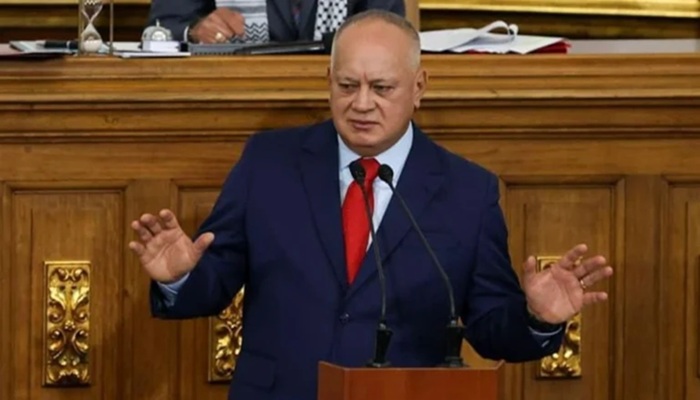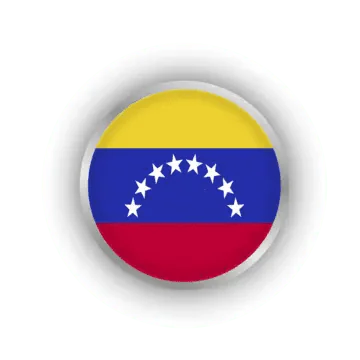During a hearing before the National Assembly on Tuesday, Citizen Security Minister Diosdado Cabello said Venezuela has faced at least 20 terrorist attacks over the past year.
“These attacks intensified after the July 28, 2024, elections in which President Nicolas Maduro was reelected,” he said, emphasizing that the acts of the Venezuelan far right have crossed “the limits of what is acceptable.”
Since December 2024, authorities have been investigating a plot in Zulia state involving business sectors and opposition figures, which included plans to attack oil facilities, the power grid, health centers and other public places.
More specifically, Cabello confirmed recent arrests of individuals who attempted to carry out a bomb attack against him at Venezuela Square in Caracas on Sunday.
“We began to pull the strings to see the connections, where the bombs came from, and behind it is an inept person like Ivan Simonovis,” Cabello said, referring to a far-right activist who is a fugitive from justice.
The Bolivarian citizen security minister then described the arrest of a man carrying explosives in his backpack who intended to detonate them at the crowded site.
Venezuela Protests ExxonMobil Oil Operations in Essequibo Waters
Last Tuesday, Venezuela strongly rejected the start of operations by the floating vessel One Guyana in the Stabroek Block, which spans 28,600 square kilometers in waters off the coast of the Essequibo.
The following is the statement from Venezuela’s Foreign Ministry:
“The Venezuelan Foreign Affairs Ministry informs the nation and the international community that, today, a diplomatic note was delivered to the Government of the Cooperative Republic of Guyana expressing the strongest protest over the start of operations by the floating production, storage and offloading vessel One Guyana in the Stabroek Block, by the multinational ExxonMobil in association with the Guyanese authorities.
Venezuela reiterates that these operations are being carried out in a maritime area pending delimitation between the two states, which makes them illegal under international law as they violate the principle of refraining from actions that alter the current situation.
The Government of the Bolivarian Republic of Venezuela warns ExxonMobil and any other company intending to engage in exploration or exploitation activities in these waters that such actions may entail political and legal consequences…”
President Maduro Launches Nationwide “Special Offensive” to Bolster Security
Venezuelan President Nicolás Maduro has announced a “special offensive” to strengthen internal security, bringing together civilian, military, and police forces in a coordinated plan across the country.
Maduro described it as a “new stage” combining grassroots communal circuits with the “police-military power” of the cuadrantes de paz — localized security units formed under the Gran Misión Cuadrantes de Paz in 2018 to combat crime in areas of two to five kilometers.
“This is a special offensive… to strengthen our internal security,” Maduro said, adding that the plan centers on a “concrete popular-military fusion” with permanent action strategies for community safety, peace, and crime prevention.
Venezuelans Oppose U.S. Threats and Back Sovereignty: Hinterlaces Poll
On Wednesday, the polling firm Hinterlaces released a survey showing Venezuelans’ rejection of U.S. threats against the Bolivarian Revolution and President Nicolas Maduro.
In a poll of 7,000 people, Hinterlaces asked citizens: “To what extent do you agree with the following statement: ‘Venezuela is a sovereign country and no government can threaten the republic’?”
The data show that 82% of respondents said they “strongly agree” or “agree,” while 13% said they “somewhat agree” and 5% said they “strongly disagree.”
Seventy-five percent of respondents rejected U.S. interference, referring to Washington’s announcement of a US$50 million reward for information leading to President Maduro’s capture.
Venezuela Denounces U.S. Allegations Amid Regional Military Deployment
Venezuelan officials rejected U.S. claims linking Caracas to drug trafficking, calling them a pretext for potential aggression, as Washington deploys thousands of personnel and advanced naval assets across Latin America and the Caribbean.
Venezuelan Defense Minister Vladimir Padrino López reacted on Saturday to the U.S. deployment of roughly 4,000 personnel, primarily Marines, tasked with counter-narcotics operations in Latin American waters. The operation reportedly includes a nuclear submarine, P-8 Poseidon reconnaissance aircraft, multiple destroyers, and a missile-equipped warship, according to CNN.
In an Instagram video, Padrino López accused the United States of relying on “false accusations” against Venezuela, including claims that the government leads drug cartels, to prepare public opinion for possible aggression.
“The problem is a narrative that is being imposed to attack Venezuela. In other words, building lies that gradually become accepted as truth,” he said, adding that the U.S. uses a media network to “spread its lies and create false positives.”
Padrino López questioned the focus of U.S. anti-drug operations, asking why forces were not deployed in the Pacific, where nearly 90 percent of narcotics destined for the United States transit. “Is the issue the Caribbean? Is it Venezuela? Are the cartels in Venezuela? Are coca crops in Venezuela?” he asked.
Diosdado Cabello, Minister of interior, justice, and peace, described the United States as “the only real threat to global stability” and rejected any agreements with actors who compromise national sovereignty.






